|
|
| |
| |
 |
Introduction
|
| |
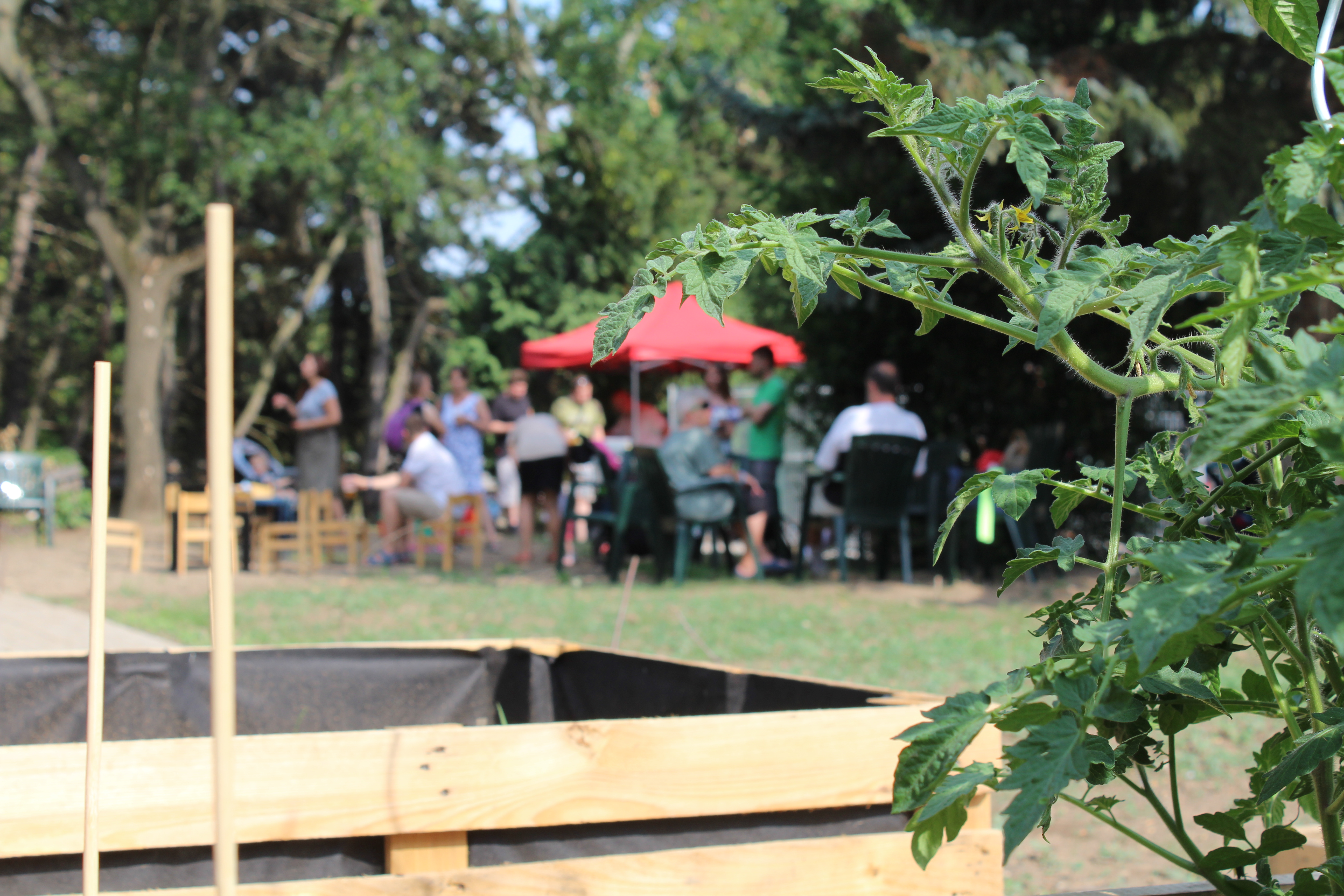 |
|
This is the 3rd newsletter of the project AgriGo4Cities that aims at exchanging experiences in the field of urban and peri-urban agriculture and social inclusion. The project encounters itself midway of the implementation process and therefore it is important to summarize its most important outputs, as well as to highlight the events that took place from March to August 2018. The newsletter consists of seven parts which include transnational partners meetings, dissemination activities, new project's outputs.
|
|
| |
 |
Project partners meetings
|
| |
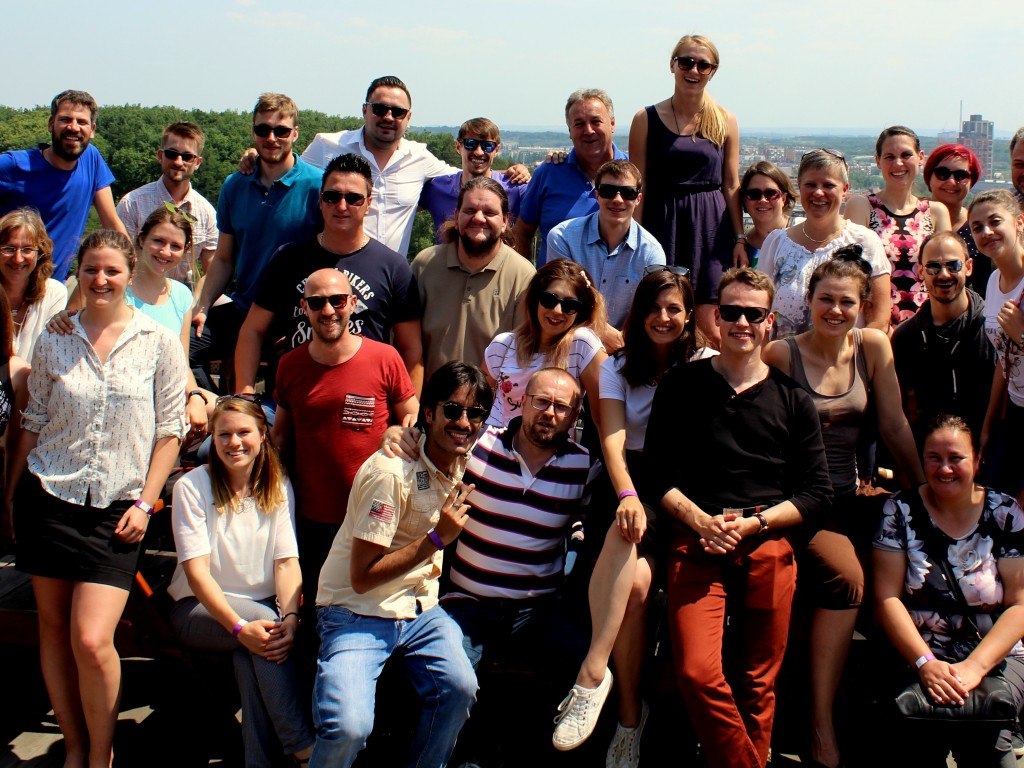 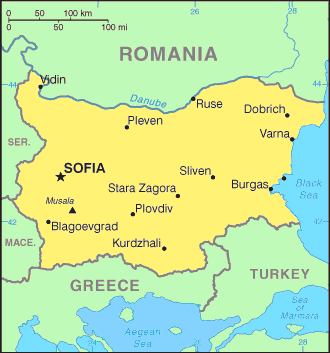 |
| |
|
The 4th project partners meeting was organized in Prague, Czech Republic between 30th and 31st May 2018. The two-day event was hosted by one of the Czech project partners, the Municipal District of Prague 9.
On 30th of May, the project partners gathered together in Prague 9 Town Hall and discussed about the project management and its individual work packages related to the project. Furthermore, the “Final good practices catalogue of participatory urban agriculture” was launched there. The programme on the next day was dedicated to study visits on the territory of Prague.
Moreover, a very interesting reportage was realized by our IVY volunteer Francesco Morra during the meeting; the reportage presents an overall image of “AgriGo4Cities”, the importance of community gardens and the results achieved. The representatives of each project partners were interviewed in order that they could explain the motivation that pushed them to collaborate together and their expectations about the future activities. They mainly focused on social inclusion issues and participatory approach, trying to transmit the essence of the project. The reportage shows up the relevance of urban gardens in the local community and all the positive effects that it entails.
The next project meeting will be held in Blagoevgrad, Bulgaria between 23rd and 24th October 2018.
|
|
| |
 |
real people, real stories
|
| |
 |
|
As well as AgriGo4Cities also other Danube Transnational Programme (DTP) projects are addressed to citizens of the Danube region in order to make it a more prosperous, better connected, more integrated and safe place. Therefore there is a DTP campaign called “Real people, Real stories” which approaches to citizens the reality of the Danube region and what the DTP projects are doing to make it better.
AgriGo4Cities has also been involved in this campaign. In May 2018, the strategic partner EUDA interviewed and published an inspiring story about the director of a kindergarten in Prague 9 who thanks to this project could afford establishing a community garden.
|
|
| |
 |
good practices catalogue
|
| |
 |
|
Good practices catalogue of participatory urban agriculture published by ZRC SAZU is one of the most important project’s outputs where all AgriGo4Cities partners actively participated.
It presents collection of successful ideas, initiatives and projects in participatory Urban and Peri-urban Agriculture (UPA). Moreover, it highlights the importance and role of public institutions in raising socio-economic inclusion of vulnerable/marginalized groups through the method of participatory UPA.
The Catalogue is structured along four chapters reflectingon the scientific, political and practical implications.
The first chapter offers a comprehensive conceptualization of participatory urban agriculture. The second chapter analyses the political framework that supports participatory urban agriculture in the Danube Region. The third one deals with the relevance of urban agriculture in the universe of EU-funded programmes and projects and their relevance for the scope of AgriGo4Cities. The final chapter presents the heart of the catalogue, by examining good practices of participatory urban agriculture. The main aim of collecting these good practices was to find the ‘recipe’ or ‘ingredients’ for the ‘secret sauce’ on how to design a successful application of participatory urban agriculture. Altogether, 21 good practices were identified, 17 from the Danube Region, and 4 from elsewhere.
|
|
| |
 |
Evaluation report
|
| |
|
The aim of the Evaluation report on the pre-project effectiveness of participatory urban agriculture in pilot areas (ex-ante) is to evaluate the effectiveness of participatory urban agriculture to improve public institutional capacities for tackling social exclusion of vulnerable and marginalised groups and stimulating sustainable urban development in the Danube Region.
The evaluation is based on a survey among local authorities, vulnerable and marginalized groups, and other interested stakeholders (e.g. NGOs, associations, development agencies, universities) in six pilot areas of the Danube Region. These are municipalities of Blagoevgrad (Bulgaria), Székesfehérvár (Hungary), Ulcinj (Montenegro), Vaslui (Romania), Velenje (Slovenia) and the municipal district Prague 9 (Czech Republic).
The main purpose of the survey is to obtain opinion of the target groups that relate to the potential of urban agriculture to enhance participatory planning, social inclusion and sustainable urban development.
|
|
| |
 |
Testing common methodology of UPA in pilot areas
|
| |
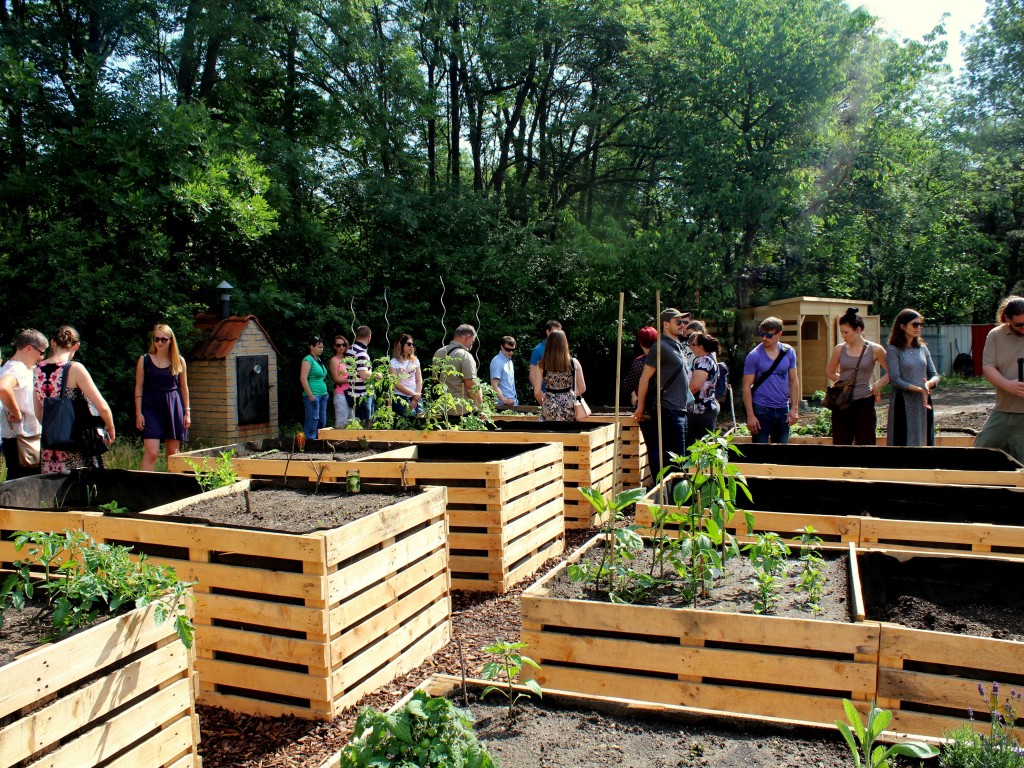 |
|
An important part of the project is to test the common methodology of participatory Urban and Peri-urban Agriculture, set up within previous actions, in six pilot areas. Currently, all responsible partners have already fulfilled this task.
In each pilot area, project partners along with organisations from a local partnership produced an action plan for its own pilot area by organizing three local workshops. With the conducting workshops, public administrators met the needs of vulnerable groups and other relevant stakeholders to create a new participatory governance model. Target groups were actively involved in the decision-making process for the purpose of managing an existing one or creating a new urban/peri-urban garden to meet the project main objectives.
|
|
| |
 |
New established community gardens
|
| |
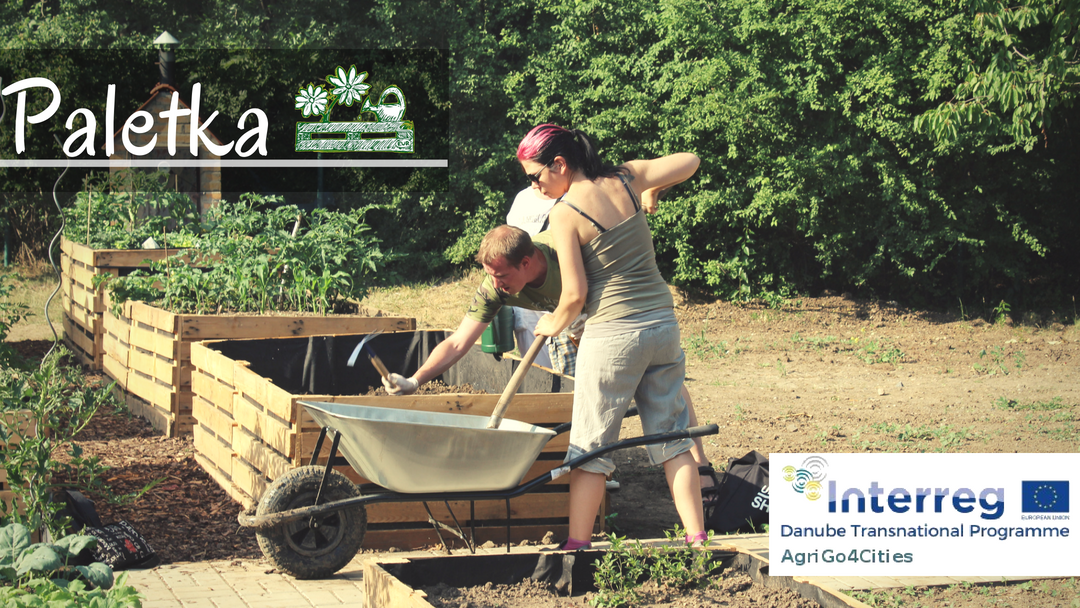 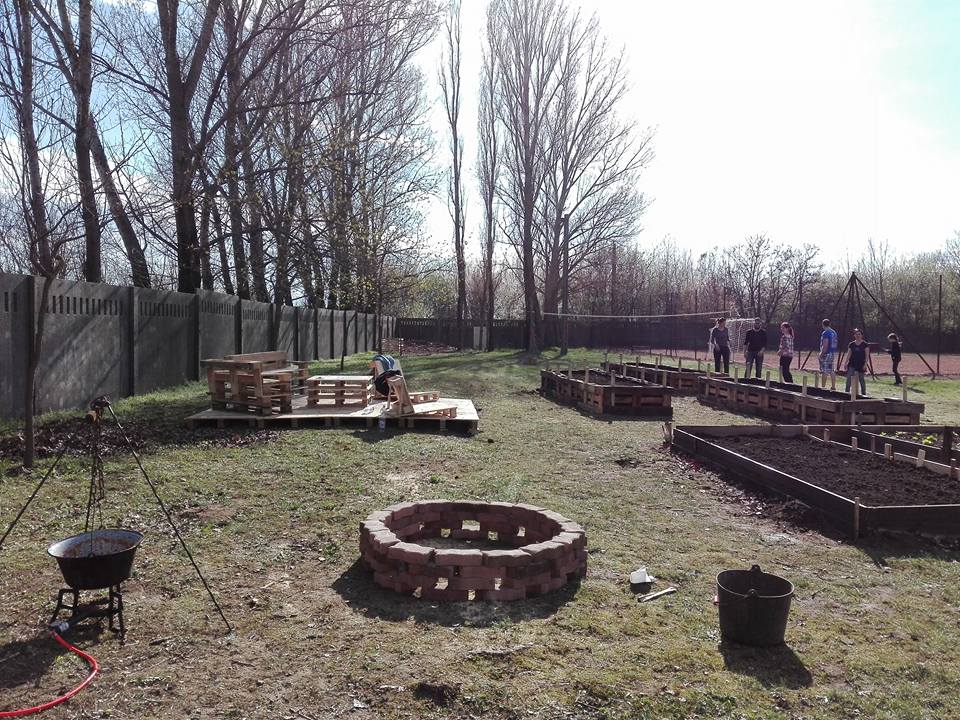 |
| |
|
AgriGo4Cities is not just about theoretical outputs or dissemination activities but also about actions and creations based on a lot of interested stakeholders living in the Danube region. For the last half-year since the implementation of this project two community gardens were designed by different vulnerable groups, however, they both shared the same aim to create a community.
In April 2018 was opened a community educational garden for mild intellectually disabled students in Székesfehérvár, Hungary, with the help of a territorial project partner CTRIA and its team, composed of students, teachers and other stakeholders. All of them were actively involved in the whole process since they monitored the building of the garden step by step.
Followed by the grand opening of another community garden called “Paletka” which is situated on the grounds of a kindergarten in Prague 9. The event was attended not only by active citizens but also by whole families with children, representatives of the city district and others.
Thanks to the cooperation among the Municipal district of Prague 9, MŠ Pod krocínkou and some citizens of the district, Paletka could be built.
|
|
| |
 |
Establishment of transnational multi-level partnership
|
| |
 |
| |
|
In this period of implementation of the project we have started dealing with another part of the project activities which are dedicated to transnational networking and transferring. The main goal is to bring new ideas, knowledge and experience from other related projects, programmes, initiatives and territories through the establishment of a transnational multi-level partnership for a better governance framework in the Danube region.
The core of the transnational partnership is represented by the six local partnerships and project partners. The membership is supplemented by the interested twin cities/municipalities of the territorial project partners and widely offered to everyone willing to participate with the vision to become a leading international association for promotion of participatory governance.
|
|
| |
 |
AgriGo4Cities goes public
|
| |
|
You can follow AgriGo4Cities on Facebook or Twitter to gain access to project news.
|
|
|
|
|
| |
|
If you have received this newsletter, you have been included on one or more of the Danube Transnational Programme/projects postal mailing lists. We are committed to respect and protect the privacy of personal data collected. We regard your personal data as confidential information and will never communicate it to third parties. Your personal data are used mainly for the express purpose of receiving the newsletter. Your mailing details may also be used by the DTP and its projects for information and dissemination purposes strictly related to the programme and its projects. If you prefer not to receive more of this newsletter and your data not to be used for dissemination purposes, you can unsubscribe by sending a reply email.
|
|
|
|
|
|
